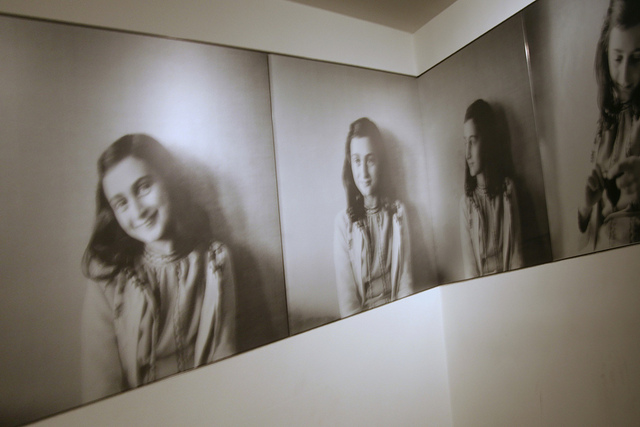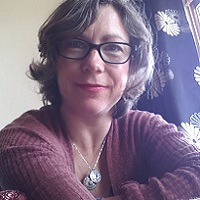“Everyone has inside of him a piece of good news. The good news is that you don’t know how great you can be! How much you can love! What you can accomplish! And what your potential is!”
Anne Frank was a young girl when she wrote what would posthumously become a bestseller.
But she was a remarkable young girl. A girl with an ambition to make a career as a writer after the war and an ambition to make a difference in the world.
Sadly, she did not live to fulfill the first wish, but she most certainly fulfilled the second.
Written while she and her family were in hiding for their lives, Anne Frank was the embodiment of choosing hope over despair and having courage in the face of a frightening reality.
But she was also real—a young teenager dealing with all the difficulties and angst that puberty brings.
Her words have inspired millions in the years since her untimely death and even one of the most inspiring leaders of our time, Nelson Mandela, is among those who have found strength and taken solace from her words:
“On Robben Island, some of us read Anne Frank’s Diary. We derived much encouragement from it. It kept our spirits high and reinforced our confidence in the invincibility of the cause of freedom and justice.”
John F. Kennedy was another to highlight the contribution she has made:
“Of the multitude who throughout history have spoken for human dignity in times of great suffering and loss, no place is more compelling than that of Anne Frank. Her humor, her humanity and her hope illuminate the hearts of men heavily clouded by the apparent willingness of those who seek power and domain over the soul of man to again deprive people of the right to live in peace, tolerance and freedom.”
In June 1999, Time magazine included Anne Frank in the “Heroes & Icons” section of their special edition titled “Time 100: The Most Important People of the Century.” The author, Roger Rosenblatt, commented on her inclusion as follows:
“The passions the book ignites suggest that everyone owns Anne Frank, that she has risen above the Holocaust, Judaism, girlhood and even goodness and become a totemic figure of the modern world—the moral individual mind beset by the machinery of destruction, insisting on the right to live and question and hope for the future of human beings.”
“The reason for her immortality was basically literary. She was an extraordinarily good writer, for any age, and the quality of her work seemed a direct result of a ruthlessly honest disposition.”
High praise, indeed.
But her legacy goes beyond the writings in her diary and is still alive and well today.
Sales of her books fund a foundation that educates young people about racism and extremism, provided medical treatment to non-Jews who risked their lives to save Jews from extermination and also funds other charities.
The building in which the Frank family spent their time in hiding is now a museum, visited by a million visitors annually and serving to remind us all of how detrimental hatred and discrimination can be, if left unchecked.
Also funded by the foundation is the Anne Frank Educational Centre, situated in the German neighbourhood in which Anne’s family lived until 1934, which supports the museum’s mission of promoting tolerance and education around the consequences of discrimination and racism.
The Frank’s home prior to the war has also been renovated—with its 1930s appearance fully restored—and since 2005 it has been offered as a one-year residence to authors who are unable to write freely in their home country.
This is so appropriate given Anne’s own dreams to be a writer of note and merit. If that didn’t materialise, she was determined she would always continue to write for her own pleasure, but she was clear about her hope for more:
“But I want to achieve more than that. I can’t imagine having to live like Mother, Mrs. van Pels and all the women who go about their work and are then forgotten. I need to have something besides a husband and children to devote myself to! I don’t want to have lived in vain like most people.”
Initially, Anne viewed her diary as a friend—and called her Kitty—in whom she could confide her innermost feelings.
“I hope I will be able to confide everything to you, as I have never been able to confide in anyone, and I hope you will be a great source of comfort and support.”
But in the summer of 1943, she started to include short stories and wrote about her aspiration to be a writer after the war. Listening to a call on radio in March 1944 from a Dutch minister for citizens to hold onto their wartime diaries, Anne began to rewrite her diary, intending for it to be published as a memoir after the war. She also hoped to work as a journalist and go on to become a famous writer. But, failing that, she was determined that she would continue to write for her own pleasure.
When the diary was saved and handed over to her father, Otto Frank, he read of this intent and—although initially reluctant—decided to fulfill her wish.
Despite initial rejections for publication and (now discredited) claims that the manuscript was fake, the diary has been translated into 67 languages. With over 30 million copies sold, its publication has had a far-reaching and long-lasting effect that would make Anne proud.
To commemorate her birthday (June 12th), here is a selection of popular quotes from the diary:
“In spite of everything I still believe that people are really good at heart. I simply can’t build up my hopes on a foundation consisting of confusion, misery and death.”
“How wonderful it is that nobody need wait a single moment before starting to improve the world.”
“Think of all the beauty still left around you and be happy.”
“No one has ever become poor by giving.”
“The best remedy for those who are afraid, lonely or unhappy is to go outside, somewhere where they can be quiet, alone with the heavens, nature and God. Because only then does one feel that all is as it should be.”
“We all live with the objective of being happy; our lives are all different and yet the same.”
“The final forming of a person’s character lies in their own hands.”
“Who would ever think that so much went on in the soul of a young girl?”
Bonus: Nelson Mandela on the strength he derived from Anne Frank’s diary while imprisoned.
~
Sources:
~
Relephant:
The Only Known Footage of Anne Frank.
~
Author: Hilda Carroll
Editor: Travis May
Photo: Flickr/Bert Knottenbeld











Read 0 comments and reply